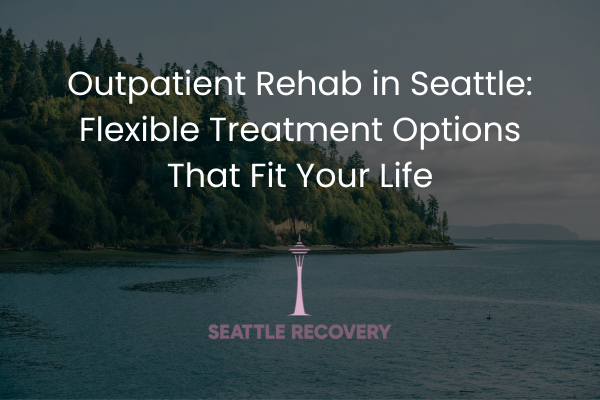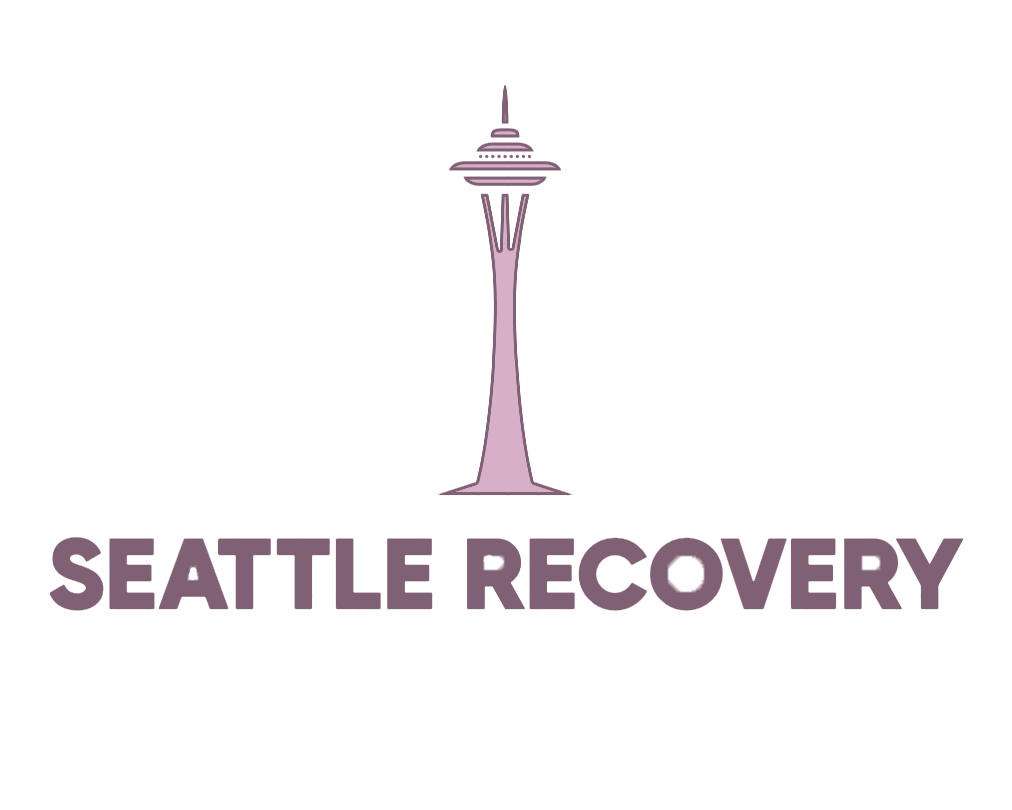Recovery from addiction doesn’t have to mean putting your entire life on hold. For many individuals seeking help for substance use disorders, Outpatient Rehab in Seattle offers the perfect balance between receiving professional treatment and maintaining important responsibilities like work, family, and education. Seattle’s progressive approach to addiction treatment has created a robust network of outpatient services that cater to diverse needs, schedules, and recovery goals.
The Pacific Northwest has long been at the forefront of innovative addiction treatment approaches, and Seattle exemplifies this commitment to comprehensive, accessible care. The city’s outpatient treatment landscape reflects an understanding that recovery is not a one-size-fits-all process. Different individuals require different levels of support, flexibility, and intervention intensity to achieve lasting sobriety.
Seattle’s unique urban environment provides additional advantages for outpatient treatment. The city’s extensive public transportation system, diverse neighborhoods, and strong community support networks create an ideal setting for individuals to receive treatment while remaining connected to their daily lives and support systems. This integration can be crucial for long-term recovery success, as it allows individuals to practice new coping skills in real-world situations while still having access to professional support.
Understanding Outpatient Treatment Models in Seattle
Outpatient addiction treatment encompasses several different program types, each designed to meet varying levels of need and life circumstances. Understanding these options is essential when considering Outpatient Rehab in Seattle, as the right program type can make a significant difference in treatment engagement and outcomes.
Seattle’s outpatient treatment facilities typically offer multiple levels of care within the same organization, allowing for seamless transitions as treatment needs change over time. This continuum of care approach recognizes that recovery is a dynamic process, and individuals may need different levels of support at different stages of their journey.
The city’s outpatient programs are designed with flexibility as a core principle. Many facilities offer evening and weekend sessions to accommodate work schedules, while others provide intensive daytime programming for those who have more availability. Some programs even offer virtual sessions, a innovation that became particularly important during the COVID-19 pandemic and has continued due to its convenience and accessibility benefits.
Intensive Outpatient Programs (IOP)
Intensive Outpatient Programs represent the most structured form of outpatient care, typically requiring participants to attend treatment sessions three to five days per week for three to four hours per session. These programs provide comprehensive therapeutic intervention while allowing individuals to return home each evening and maintain some level of normal daily functioning.
Seattle’s IOPs often incorporate group therapy, individual counseling, family sessions, and educational components about addiction and recovery. Many programs also include case management services to help participants navigate practical challenges like housing, employment, legal issues, or healthcare coordination. The group therapy component is particularly valuable in Seattle’s diverse urban environment, as it allows individuals to connect with others from various backgrounds who share similar struggles and goals.
The intensity of IOPs makes them suitable for individuals who need significant support but have stable housing and some family or social support. They work particularly well for people transitioning from inpatient treatment or those whose addiction severity requires more than traditional weekly counseling but less than residential care.
Partial Hospitalization Programs (PHP)
Partial Hospitalization Programs provide hospital-level treatment intensity during daytime hours, typically five days per week for six to eight hours per day. These programs are ideal for individuals who need intensive medical monitoring and psychiatric support but have a safe, supportive environment to return to each evening.
Seattle’s PHP offerings often include psychiatric services, medical monitoring, intensive group and individual therapy, family therapy, and comprehensive case management. These programs are particularly beneficial for individuals with co-occurring mental health conditions that require ongoing psychiatric care alongside addiction treatment.
The medical component of PHPs is especially important in Seattle, given the city’s challenges with opioid addiction and the need for medication-assisted treatment integration. Many Seattle PHPs can provide seamless coordination with medical providers for medications like buprenorphine, methadone, or naltrexone while addressing the psychological and behavioral aspects of addiction.
Traditional Outpatient Counseling
Traditional outpatient counseling involves regular sessions with a licensed addiction counselor or therapist, typically once or twice per week. This level of care works well for individuals with strong support systems, stable living situations, and less severe addiction presentations. It’s also commonly used as a step-down from more intensive treatment or as ongoing maintenance therapy for individuals in long-term recovery.
Seattle offers numerous options for traditional outpatient counseling, ranging from community mental health centers to private practice therapists specializing in addiction. Many of these services accept insurance and sliding-scale fees, making them accessible to individuals across different economic circumstances.
Medication-Assisted Treatment Programs
Given Seattle’s ongoing challenges with opioid addiction, medication-assisted treatment (MAT) programs represent a crucial component of the city’s outpatient treatment landscape. These programs combine FDA-approved medications with counseling and behavioral therapies to treat opioid use disorders and, in some cases, alcohol use disorders.
Seattle’s MAT programs typically offer medications like buprenorphine (Suboxone), methadone, or naltrexone alongside regular counseling and case management services. The integration of medical and behavioral treatment components makes these programs particularly effective for individuals with opioid dependencies who need ongoing medical support to maintain recovery.
Benefits of Choosing Outpatient Treatment in Seattle
Selecting Outpatient Rehab in Seattle offers numerous advantages that extend beyond the flexibility of scheduling. The city’s approach to outpatient care incorporates evidence-based practices with innovative treatment modalities that address the whole person, not just the addiction.
One of the primary benefits of outpatient treatment is the ability to practice recovery skills in real-world situations while still having access to professional support. This real-time application of coping strategies, communication skills, and relapse prevention techniques can be invaluable for building confidence and competence in recovery. Seattle’s diverse urban environment provides numerous opportunities to practice these skills across different social and professional contexts.
The cost-effectiveness of outpatient treatment also makes it an attractive option for many individuals. Without the expenses associated with residential facilities, outpatient programs typically cost significantly less while still providing comprehensive therapeutic intervention. For individuals with insurance coverage, outpatient services are often covered at higher rates than inpatient treatment, reducing out-of-pocket expenses.
Seattle’s strong recovery community provides additional benefits for outpatient participants. The city hosts numerous 12-step meetings, SMART Recovery groups, LifeRing meetings, and other peer support options. This extensive network of community support complements professional treatment and provides ongoing connection and accountability that extends beyond formal treatment hours.
The ability to maintain employment during outpatient treatment can be crucial for long-term recovery success. Financial stability, professional identity, and workplace relationships often play important roles in motivation and self-esteem. Seattle’s economy provides diverse employment opportunities, and many employers in the region are supportive of employees seeking addiction treatment.
Family involvement is another significant advantage of outpatient treatment. Families can participate more easily in therapy sessions, educational programs, and recovery activities when the individual remains living at home. Seattle’s family-focused treatment programs recognize that addiction affects entire family systems and that healing these relationships is often essential for sustained recovery.
Addressing Seattle-Specific Challenges
Outpatient Rehab in Seattle is designed to address specific challenges common in the Pacific Northwest region. The city’s rainy climate and seasonal affective patterns can impact mood and motivation, particularly during long winter months. Many programs incorporate light therapy, outdoor activities when weather permits, and specific strategies for managing seasonal mood changes.
The region’s culture around alcohol use, particularly craft beer and wine culture, requires specialized approaches to recovery planning. Seattle’s outpatient programs often provide extensive work on navigating social situations, work events, and cultural activities that may involve alcohol. This real-world focus is particularly valuable for individuals whose careers or social lives involve frequent exposure to drinking situations.
Seattle’s cost of living and housing challenges also influence outpatient treatment approaches. Many programs incorporate practical support for housing stability, financial management, and accessing community resources. Case management services often help individuals navigate Seattle’s complex social service systems and connect with resources for basic needs like housing assistance, food security, and healthcare access.
Specialized Outpatient Programs and Populations
The diversity of Seattle’s population has led to the development of specialized Outpatient Rehab in Seattle programs designed to meet the unique needs of specific communities and populations. These specialized programs recognize that cultural competency, identity affirmation, and targeted approaches can significantly improve treatment engagement and outcomes.
Programs for Young Adults
Seattle’s young adult programs typically serve individuals aged 18-30 and address the unique challenges this population faces in early recovery. These programs often incorporate career counseling, educational planning, peer support networks, and family therapy approaches that address launching into independent adulthood while maintaining recovery.
Young adult programs in Seattle frequently integrate technology and social media awareness into treatment, helping participants develop healthy relationships with digital platforms and online communities. Given the prevalence of social media in young adult culture, these skills are essential for navigating modern social environments in recovery.
Women-Specific Programming
Many Seattle outpatient facilities offer women-only groups and specialized programming that addresses issues commonly affecting women in recovery. These programs often focus on trauma recovery, parenting challenges, relationship issues, body image, and reproductive health concerns. The gender-specific approach allows for deeper exploration of issues that might be difficult to address in mixed-gender settings.
Seattle’s women’s programs often provide childcare services or family-friendly scheduling to accommodate parenting responsibilities. This practical support can make the difference between being able to participate in treatment or having to forgo care due to childcare challenges.
LGBTQ+ Affirmative Treatment
Seattle’s strong LGBTQ+ community has fostered the development of affirmative treatment programs that address the specific challenges faced by sexual and gender minorities. These programs provide culturally competent care that addresses minority stress, identity development, family acceptance issues, and community connection.
LGBTQ+ affirmative programs in Seattle often incorporate peer support from others with shared identity experiences and provide resources for navigating discrimination, healthcare access, and legal issues that may impact recovery. The affirmative approach recognizes that identity acceptance and community connection are often crucial components of recovery for LGBTQ+ individuals.
Professional and Executive Programs
Recognizing the unique challenges faced by professionals and executives, many Seattle outpatient facilities offer specialized programs for high-functioning individuals whose careers may be at risk due to substance use. These programs often provide flexible scheduling, confidentiality protections, and career-focused recovery planning.
Professional programs in Seattle may incorporate career coaching, workplace re-entry planning, and strategies for managing high-stress work environments in recovery. They often attract professionals from Seattle’s tech industry, healthcare sector, legal community, and business leadership who need treatment approaches that understand the demands and culture of professional environments.
Integration with Seattle’s Healthcare System
One significant advantage of seeking Outpatient Rehab in Seattle is the integration with the city’s extensive healthcare system. Seattle is home to world-renowned medical centers, research institutions, and healthcare networks that provide comprehensive support for individuals with addiction and co-occurring medical conditions.
The coordination between Outpatient Rehab in Seattle and primary healthcare can be crucial for individuals with medical complications from substance use or those requiring ongoing medical monitoring during recovery. Seattle’s healthcare infrastructure allows for seamless communication between addiction specialists, primary care physicians, psychiatrists, and other medical specialists.
Many of Seattle’s major healthcare systems have embedded addiction treatment services within their broader healthcare offerings, making it easier for individuals to access integrated care. This integration can be particularly valuable for individuals with co-occurring mental health conditions, chronic medical conditions, or those requiring medication-assisted treatment.
The city’s emphasis on evidence-based medicine and research also means that Seattle’s outpatient programs often have access to cutting-edge treatment approaches and participate in clinical trials that may offer additional treatment options for participants.
Insurance and Payment Options
Understanding insurance coverage and payment options is crucial when considering outpatient treatment. Seattle’s outpatient facilities generally accept a wide range of insurance plans, and Washington State’s expansion of Medicaid under the Affordable Care Act has increased access to addiction treatment services for low-income individuals.
Many Seattle outpatient programs employ insurance specialists who can help verify benefits, explain coverage limitations, and identify any required authorizations before treatment begins. This proactive approach helps prevent unexpected costs and ensures that individuals can make informed decisions about their treatment options.
For individuals without insurance or with limited coverage, many Seattle facilities offer sliding-scale fees based on income, payment plans, and connections to state-funded treatment resources. Washington State also provides funding for addiction treatment through various programs, and Seattle-area facilities can help individuals access these resources.
Some employers in Seattle offer Employee Assistance Programs (EAPs) that provide free or low-cost access to addiction assessment and treatment services. The city’s progressive business community often supports employee recovery efforts, and many companies provide health insurance plans with robust addiction treatment benefits.
Finding the Right Program for Your Needs
Selecting the most appropriate Outpatient Rehab in Seattle requires careful consideration of multiple factors including treatment needs, schedule requirements, location preferences, insurance coverage, and personal goals. The abundance of options in Seattle can be overwhelming, but this diversity also means that there’s likely a program that fits individual needs and circumstances.
The assessment process typically begins with a comprehensive evaluation that examines substance use patterns, mental health history, medical conditions, social support systems, work and family responsibilities, and previous treatment experiences. This assessment helps determine the most appropriate level of care and program type.
Location within Seattle can be an important consideration, as the city’s traffic patterns and public transportation options may influence accessibility. Many individuals prefer programs close to home or work, while others may prefer programs in different neighborhoods to avoid potential triggers or maintain privacy.
Program philosophy and treatment approaches should align with personal preferences and beliefs about recovery. Some individuals prefer 12-step based programs, while others may be more comfortable with SMART Recovery, Buddhist-influenced approaches, or purely clinical/medical models. Seattle’s diverse treatment landscape includes programs representing various philosophical approaches to recovery.
The availability of specialized services like trauma therapy, family counseling, psychiatric services, or medication-assisted treatment may influence program selection. Individuals with co-occurring mental health conditions should prioritize programs with integrated mental health services and psychiatric support.
Schedule flexibility is often a primary concern for outpatient treatment participants. Seattle programs offer various scheduling options including morning, afternoon, evening, and weekend sessions. Some programs provide multiple time options for the same services, allowing participants to attend different session times based on their weekly schedule variations.
Transportation and Accessibility
Seattle’s public transportation system, including buses, light rail, and streetcars, makes many outpatient treatment facilities accessible without personal vehicles. This accessibility can be particularly important for individuals whose driver’s licenses may be suspended due to DUI charges or who cannot afford vehicle expenses during early recovery.
Many outpatient facilities in Seattle are located near public transportation routes and provide information about transportation options for participants. Some programs offer transportation assistance or vouchers for individuals who face transportation barriers to treatment participation.
The city’s bike-friendly infrastructure also provides alternative transportation options for treatment participants who prefer cycling. Many outpatient facilities provide secure bike storage and shower facilities for participants who bike to treatment sessions.
For individuals with mobility challenges, Seattle’s outpatient facilities generally comply with ADA accessibility requirements and can provide accommodations for participants with disabilities. The city’s commitment to accessibility extends to its treatment facilities, ensuring that physical limitations don’t prevent access to care.
Making the Decision to Begin Treatment
The decision to begin outpatient treatment represents a significant step toward recovery and improved quality of life. For many individuals, the flexibility and accessibility of Outpatient Rehab in Seattle make it possible to seek help while maintaining important life responsibilities and relationships.
The initial contact with treatment facilities can feel intimidating, but Seattle’s programs generally employ compassionate, knowledgeable staff who understand the courage required to seek help. Most facilities offer free consultations or assessments that allow individuals to learn more about program options without making immediate commitments.
Preparing for Treatment
Preparation for outpatient treatment may include arranging work accommodations, organizing childcare, coordinating with insurance providers, and preparing family members for schedule changes. Seattle’s programs often provide guidance and resources to help individuals navigate these practical considerations.
The motivation to seek treatment often fluctuates, and it’s common for individuals to have ambivalent feelings about beginning recovery. Seattle’s outpatient programs are experienced in working with individuals at various stages of motivation and can provide support for exploring and strengthening commitment to change.
Beginning Treatment
Beginning outpatient treatment doesn’t require waiting until reaching a crisis point. Many individuals benefit from seeking help early, before addiction has caused severe consequences. Seattle’s preventive approach to addiction treatment means that programs are available for individuals at various stages of substance use problems, from early intervention to long-term recovery maintenance.
Recovery is a journey that unfolds differently for each individual, and the support available through Seattle’s outpatient programs can provide the foundation for lasting positive change. With comprehensive services, experienced professionals, and a supportive community environment, individuals seeking help in Seattle have access to some of the most innovative and effective outpatient addiction treatment options available.
The combination of clinical excellence, cultural competency, and practical flexibility that characterizes outpatient treatment in Seattle creates opportunities for individuals to recover while maintaining the connections and responsibilities that give their lives meaning and purpose. This integrated approach to recovery often leads to more sustainable outcomes and improved quality of life for individuals and their families. Don’t wait any longer and reach out to our staff today by calling 1 (206) 231-0252 or visiting our website. The combination of professional expertise, proven therapeutic approaches, and strong community support creates an environment where lasting recovery can flourish.








